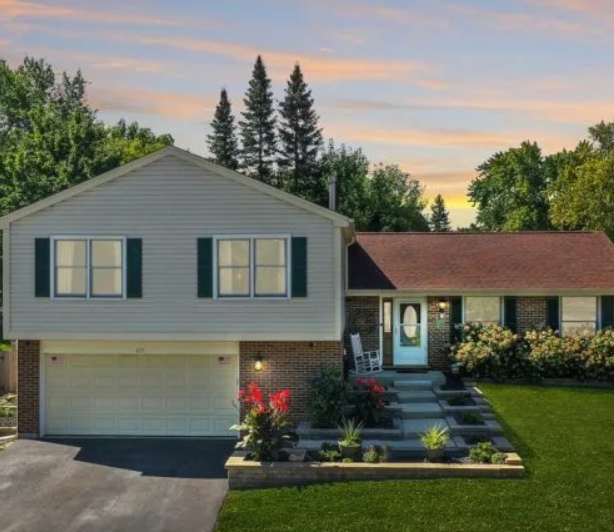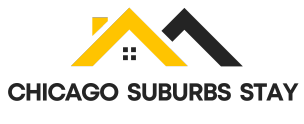Corporate housing cost is a key factor for businesses and professionals seeking temporary accommodations that balance comfort, convenience, and affordability.
Unlike traditional hotels, corporate housing offers fully furnished apartments or homes designed for extended stays, often including amenities such as kitchens, laundry facilities, and flexible lease terms.
The cost can vary widely depending on location, duration of stay, property size, and included services.
This comprehensive overview explores the elements that influence corporate housing costs, helping you make informed decisions when planning short- or long-term stays.
Key Takeaways
- You’ll get a clear view of the main cost drivers for furnished rentals in the U.S.
- Bundled utilities and a full kitchen often lower your total cost of living on assignment.
- Compare daily versus monthly pricing to find break-even points against hotels.
- Billing options can include pro-rated terms, direct employer billing, and split invoices.
- State-by-state comparisons and a Chicago suburbs focus — including Lake Zurich — help with local budgeting.
- Look for transparent base rates that list inclusions to avoid surprise fees.
Understanding Corporate Housing and Why Costs Differ from Hotels
For assignments longer than a few nights, the real value often lies in larger, furnished units with predictable monthly bills. You get more than a single room: separate areas for sleeping, working, and relaxing that support daily routines.
The value of fully furnished space and home-like amenities
Fully equipped living spaces include a full kitchen, in-unit or on-site laundry facilities, and separate living and sleeping rooms. That layout helps you cook, sleep, and work without the limitations of a small hotel footprint.
Extended stay hotels vs. corporate apartments: how pricing and inclusions compare
Extended stay hotels offer convenience but often tack on fees for internet, laundry, and daily services. By contrast, a corporate apartment bundles utilities, Wi‑Fi, and basic furnishings into the base rate, which reduces surprise charges.
- You get 2–3x the usable space for similar monthly pricing versus many hotels.
- Bundled services remove daily fees and typical hotel taxes you’d otherwise pay.
- A residential setting helps maintain routines and keeps expenses predictable during multi-week stays.
What’s Included in the Corporate Housing Cost
Knowing what’s bundled into a furnished rental helps you budget and avoid surprise bills. Providers typically roll common utilities and basic services into a single monthly figure so you get a predictable invoice.
Utilities, internet, and cable
Flat rates usually cover electric, gas, and water, plus cable, local phone, and high-speed internet. That consolidated price removes the need to set up separate accounts or chase reimbursements.
Furniture, linens, and kitchenware
You move into a fully furnished apartment with essential furniture, housewares, kitchenware, and linens in place. This minimizes setup costs and lets you settle in on day one.
Housekeeping and laundry facilities
Many providers offer optional housekeeping service and either in-unit or on-site laundry facilities. These features keep routines simple during multi-week or month-by-month stays.
Billing practices and base-rate transparency
Reputable providers make the base rate the true base. Expect pro-rated pricing beyond 30 days, direct employer billing, and split charges so companies cover standard items while residents pay upgrades. VIP corporate housing examples note entry rates beginning at just $59 a day and consolidated invoices from corporate housing companies that ease reimbursement.
- You get utilities—electric, gas, water—plus cable and internet in one predictable amount.
- Fully furnished apartments include furniture, linens, appliances, and kitchenware.
- Housekeeping options and laundry facilities support longer stays with low hassle.
- Clear billing: per-day pro-rates, direct employer bills, and split invoices reduce surprises.
Factors That Influence Rates Across the United States
Prices for mid-term furnished apartments shift with demand, nearby employers, and available services. Understanding these drivers helps you assess why state and metro prices vary and prepares you for the state-by-state comparison ahead.
Location and proximity to business hubs, hospitals, and transit
Location matters: units near premier business districts, major hospitals, and transit hubs command higher rates because demand is concentrated and inventory is limited. You can choose central locations for walkability or outlying areas for lower fees and easier parking.
Length of stay and flexible lease terms after the initial minimum
Longer stays usually unlock better pricing. Many providers offer flexible lease terms that switch to month-to-month after a minimum period, so you can avoid long commitments if project timelines change.
Property type, unit size, and access to community facilities
Unit size and building facilities drive price differences. Larger apartments or premium buildings with gyms, pools, and business lounges cost more. Evaluate the true value and check furnishings, Wi‑Fi quality, and maintenance responsiveness before you pay a premium.
- Expect higher rates near job centers and transit nodes.
- Negotiate better pricing for longer stays and flexible lease terms.
- Balance price and convenience and compare amenities, unit size, and overall package value.
Corporate housing cost in the United States: State-by-state overview
Where you stay can shift monthly furnished-rental bills by hundreds of dollars. State averages hide big metro gaps, so look at cities and suburbs when you compare options.
Higher-cost states and metros
New York, California, Massachusetts, Washington—city cores in these states command the highest monthly rates. Dense demand, limited space, and local fees push prices up quickly.
Mid-tier markets
States such as Colorado, Virginia, North Carolina, and Georgia offer balanced options. You can trade commute time for better amenities and larger floor plans.
More affordable markets
Ohio, Indiana, Missouri, and many Texas suburbs present value. Broader inventory and competition give you more negotiating leverage on base rates and add-ons.
How local rules and bundled services affect effective rates
Bundled utilities and internet often make furnished rentals more economical than hotels for multi-week stays. Hotel taxes alone can add roughly $840 per month, an expense you typically avoid in these rentals.
- Compare corporate housing offers to see what is included in the base figure.
- Use suburban housing offers near business parks to save while accepting a longer commute.
- Account for premium amenities or parking fees when calculating total monthly outlay.
| Tier | Example States | Typical Monthly Range (1BR) | Key Local Factor |
| High | NY, CA, MA, WA | $3,000–$6,000 | Urban density, local taxes, limited inventory |
| Mid | CO, VA, NC, GA | $1,800–$3,000 | Balanced amenities, suburban options |
| Value | OH, IN, MO, TX suburbs | $1,000–$1,800 | Broader supply, competitive pricing |
| Influence | All states | Varies by neighborhood | Utilities, internet bundling, municipal fees |
Budgeting Tips, Rate Structures, and Savings Versus Hotels
Knowing how daily and monthly rates compare helps you avoid overpaying during multi-week assignments. Build a simple model that multiplies a nightly fee by the expected days and compares that to a monthly rate to find a break-even point.
Daily versus monthly rates: understanding the break-even for longer stays
Short stays often favor daily pricing. But after a few weeks, the monthly rate usually becomes the better option.
Look for pro-rated policies after 30 days so you only pay for extra days beyond the first month.
Savings from included utilities, Wi‑Fi, and the ability to cook at home
Bundled utilities and high-speed internet remove daily fees and reduce variability across bills.
Cooking in a full kitchen cuts restaurant spending and laundry fees that often push hotel-based assignments above your planned cost.
Direct employer billing and split charges to control costs
Ask providers about direct employer billing or split invoices. Many corporate housing companies will bill employers for base items while you pay personal add-ons.
- Align invoices with expense codes to cut admin time.
- Choose modest amenity packages or accept a longer commute to lower rates.
- Prioritize providers with strong customer service for faster maintenance and clear billing.
Corporate Housing Cost in the Chicago Suburbs
Choosing a suburban location around Chicago can stretch your budget while keeping commutes reasonable. Suburban markets cluster furnished rentals near corporate parks, hospitals, and major arterials like I‑90, I‑294, and Metra lines.
What to expect: providers typically offer fully equipped apartments with bundled utilities and internet. You’ll usually get easier parking, larger living spaces, and access to community amenities not common in the urban core.
- You’ll often pay less than downtown for comparable apartment sizes and amenities.
- Target Metra corridors or major roads to balance commute and value.
- Choose from garden-style complexes to newer mid-rise corporate apartments.
- Bundled bills keep monthly budgeting predictable during a relocation or long project.
- Work with housing companies that know local demand cycles—medical rotations and consultant waves.
Flexible Temporary Housing in Lake Zurich, IL with Chicago Suburbs Stay
Lake Zurich, IL is a sought-after destination for those looking for short- or mid-term housing in the Chicago suburbs. Known for its peaceful atmosphere and well-appointed rentals, Chicago Suburbs Stay provides fully furnished homes with flexible lease terms that work for professionals, families, or anyone in transition. Below are two featured properties offering comfort, convenience, and adaptable living options.
1. 375 Pebblecreek Drive – Comfortable Short-Term Rental in Lake Zurich

Situated in the heart of Lake Zurich, 375 Pebblecreek Drive is a 3-bedroom, 2-bathroom home designed with temporary living in mind. Fully furnished and equipped with modern essentials like high-speed internet, it’s an excellent fit for remote workers or families navigating a transition.
The property includes a private yard for outdoor relaxation, on-site parking, and all utilities—ensuring a stress-free stay. Flexible lease options allow you to tailor the rental to your unique needs.
Highlights:
- 3 bedrooms, 2 bathrooms
- 250 m² living space across 3 levels
- Fully furnished with heating, electricity, and Wi-Fi included
- Parking for two vehicles
- Amenities: gym, swimming pool, Apple TV, sauna access, nearby parks, and more
This rental combines convenience with comfort, offering a turnkey housing solution for anyone in Lake Zurich.
2. 975 Old Mill Grove Road – Spacious Transitional Housing Option

For those seeking more space, 975 Old Mill Grove Road offers a 4-bedroom, 3-bathroom layout across multiple levels. Perfect for corporate professionals, ALE housing, or families awaiting permanent housing, this property provides both furnished and unfurnished options.
With utilities, in-unit laundry, and pet-friendly features included, it adapts easily to a variety of lifestyles. Available from October 1, 2024, this home balances size with flexibility for short- or mid-term stays.
Highlights:
- 4 bedrooms, 3 bathrooms
- 250 m² living space over 3 levels
- Heating, electricity, and Wi-Fi included
- Option to rent furnished or unfurnished
- Parking for two vehicles
- Amenities: air conditioning, swimming pool, gym, Apple TV, sauna access, and nearby parks
Whether relocating for work, bridging the gap before permanent housing, or managing a temporary life transition, both of these properties in Lake Zurich deliver the convenience, flexibility, and comfort you need.
Conclusion
Before you sign, confirm bundled services, pro-rated terms, and how invoices are handled for your assignment.
Prioritize inclusive pricing and a right-sized apartment so the monthly total matches your needs. Choose fully furnished options with a kitchen, linens, and reliable utilities to make the space feel like home on day one.
Compare metros and suburbs to balance commute and value, using the state-by-state view and Chicago suburbs tips to guide you. Look for lease terms that allow extensions and clear invoices that let employers pay or split charges.
Work with responsive housing companies that offer fast customer service and transparent offers. With those checks, you can treat this option as a practical alternative for an extended stay and manage associated corporate cost confidently.
FAQs
How much does corporate housing typically cost per month in the U.S.?
Corporate housing costs usually range between $2,000 and $5,000 per month for a one-bedroom unit, depending on the city, amenities, and duration of stay. High-demand metros like New York or San Francisco trend toward the upper end, while suburban or smaller-city markets are often significantly less.
Is corporate housing cheaper than Airbnb or vacation rentals?
Yes, in most cases. While Airbnb or vacation rentals may have competitive nightly rates, they often come with added cleaning fees, service charges, and taxes. Corporate housing typically offers bundled pricing with fewer extra charges, making it more affordable for stays longer than 30 days.
Can corporate housing be rented for less than 30 days?
Some providers do offer short-term rentals under 30 days, but many corporate housing companies set a minimum stay of 30 nights to qualify as an extended stay and to avoid hotel-style lodging taxes. For shorter stays, extended stay hotels may be a better fit.
Do corporate housing providers require a security deposit?
Yes, most providers require a refundable security deposit. The amount varies but is often equal to one month’s rent or a flat fee ranging from $500 to $1,500, depending on the property and length of stay.
Can the cost of corporate housing be negotiated?
Yes, pricing is often negotiable, especially for longer stays. Companies booking multiple units or committing to extended leases can usually secure lower monthly rates or additional perks like free parking or housekeeping.
How does corporate housing billing work for businesses versus individuals?
Businesses often arrange direct billing with providers, consolidating invoices for multiple employees. Individuals, on the other hand, may pay monthly like a traditional lease. Some providers allow split invoicing, where the employer covers base rent while the tenant pays for optional add-ons.

